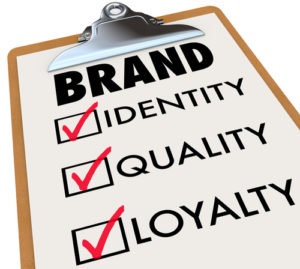
Successful hotel pantry management depends on a lot of elements. Among the most important is providing brand name items for guests. Even though it’s tempting to buy generic products to save some money up front, you stand to make more money by using branded items. Below are three reasons why.
3 Reasons to use Brand Name Products in Your Hotel Pantry
1. Brand Recognition
When someone gets a desire for a certain product, whether it be an ice-cold, fizzy soda or a particular type of snack, they’re not thinking of just any old soft drink or bag of chips. They want their favorite. And when they see the logo or uniquely shaped package on the shelf, there’s a good chance they’ll make a purchase. This is called brand recognition.
So, what does this have to do with your hotel pantry?
Let’s say a guest named John just arrived at your hotel. He’s been traveling all day. He’s probably tired and just wants to relax while watching some television for a little bit, then he realizes he wants a soda and a snack.
He remembers passing by the pantry near the lobby and saw the bottles of Coke in the cooler and the Doritos on the shelf–his favorite. There’s a good chance he’ll go purchase those items not just because they’re his favorite, but also because he knows what he’ll get.
Do you think the same would happen with generic, store-brand items?
Probably not. That’s the power and effectiveness of brand recognition. Fill your pantry with recognizable brands and guests will flock to it, increasing the revenue from your pantry.
2. Consumer Trust
The big brand names you see in any market have a huge following. Think about it: Apple, Nike, Delta…whatever the market, those big brands have a huge customer base and loyal following. This doesn’t happen on accident.
Those companies spend an enormous amount of time and money on ensuring they provide the best product or service they can offer. Apple’s products deliver on user experience. Nike’s apparel is always comfortable. Delta’s service is top-notch. As a result, customers keep coming back. Why? Because they’ve come to trust these products and services.
The same holds true for choosing the items to sell in your hotel pantry.
While it’s important to save money in whatever way possible, your pantry will be more successful if you offer products that guests know and trust. If your pantry is full of store brand items, guests might not necessarily know what they’re getting for their money. This inevitably results in expired products as they sit on the shelves for too long. Give them what they know and like.
3. Customer Loyalty
Loyal customers will continuously purchase products from their favorite brands regardless of convenience or price. This is great news for your hotel pantry, because branded items allow you to set higher pricing, which can then increase your profit margin from the items sold.
So instead of buying a generic item for $1.00 each and selling them for $1.25, you can pay $1.50 per item and sell it for $2.00.
This doesn’t mean you should set pricing too high (there’s always a limit). But the goal then becomes setting the prices for items sold in your hotel pantry at the highest possible price that customers will pay for them. It works out for both the consumer, who gets what they want, and your hotel, which makes a nice profit.






